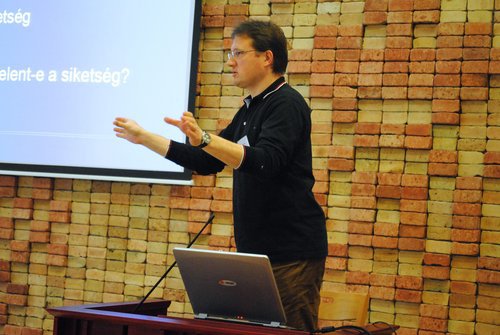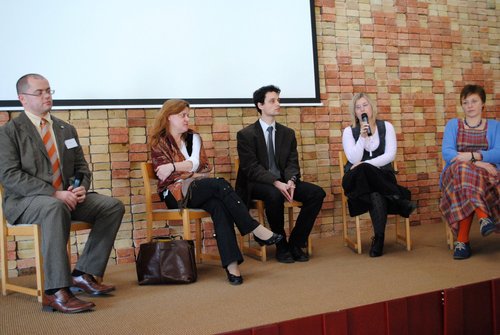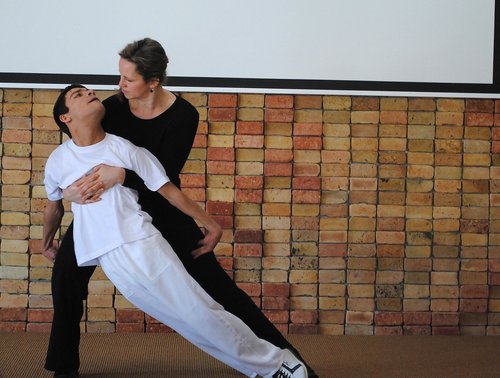The Hungarian Reformed Church Aid (HRCA) recently organized a conference to discuss the challenges facing disabled people in Reformed congregations as well as different ways churches have attempted to address these issues.
The conference, held 11-12 March, served as a forum to examine the current handicap accessibility of Reformed congregations and consider new ways to facilitate integration. Representatives from different congregations, people with different disabilities and those who work with the handicapped attended the conference. Bishop Gusztáv Bölcskei, presiding bishop of the Reformed Church in Hungary, opened the conference with a worship service based on I Corinthians 8. Károly Czibere, Director of HRCA, followed Bishop Bölcskei’s message with some opening words introducing the theme of “thresholds” before introducing the three keynote speakers. Czibere stressed that a church’s accessibility was not only a physical accessibility, but an emotional accessibility as well.

The first speaker, Áron Németh a theological professor at Debrecen Reformed Theological University, presented a theological perspective and discussed the image of handicapped people in the Bible. Eszter Márkus, professor and rehabilitation pedagogue specializing in multiple disabilities, highlighted two main ideas in her presentation. First, that disabled people should be taught and trained to be independent, so they are not reliant on social aid. Secondly, she said they are able, and should integrate socially with their peers. Péter Váradi, a Reformed pastor, was the third presenter. His focus was on church programming, specifically starting programs that bring healthy and disabled children together. According to Váradi, children do not have social issues or constructs that cloud their vision, and this early interaction is the means to break down social stigmas.

The conference also had an open panel session where the moderator and participants were able to pose questions to the speakers. Following this, people broke into small discussion workshops that each discussed a different topic, for instance deaf, blind, mentally disabled or autistic. These were designed to examine different churches' best practices and discuss what the actual issues are concerning accessibility, including ideas to combat them. According to Czibere, this dialogue was another goal of the conference. From this information HRCA will construct a document to present to the church's Synod, and if approved, will create the groundwork for wider accessibility and integration conversations in RCH congregations. In fact, this started before the conference when the HRCA office and Helping Hand, a charity NGO, announced a competition asking, "How do you help disabled people in your congregation?" Congregations sent in written entries for consideration and six were recognized at the conference, with the first place honor going to the Kapernaum Group from Budapest.

Smaller hands-on workshops demonstrating communication techniques for different types of disabilities were also part of the program. There was a Sign Language demonstration and rooms to experiment with educational tools used by mentally handicapped as well as Braille. Additionally there were three special presentations starting off with Zsofia Juhász, director of Immanuel Home, a day-care center for disabled children, performing together with Tamás Kulcsár, one of Immanuel's physically disabled students. Szilvester Szabó conducted another presentation in Sign Language that briefly explained the history of deaf education, and finally, Tamás Durgonics, who is blind, closed the conference with worship.
However, while the conference is over, the HRCA's work most certainly is not complete. The challenge is to continue collecting examples, practices and ideas to create a quality knowledge pool for congregations to utilize while crossing the threshold that is preventing integration.
Amy Lester